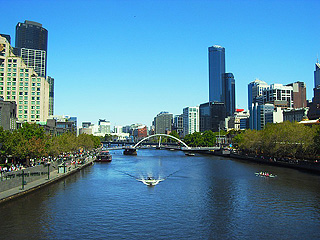Bosnian Technical Translator
 Get the right Bosnian translator experienced in translating specialised technical material. Many of our technical translators are expert linguists and Master/PhD holders with many years' of translation experience.
Get the right Bosnian translator experienced in translating specialised technical material. Many of our technical translators are expert linguists and Master/PhD holders with many years' of translation experience.
Examples of Bosnian translations we provide include:
- Bosnian multilingual translations for manufactured products
- Bosnian translation for instructional manuals
- Bosnian translation for labels
- Bosnian translation for technical drawings in construction
- Bosnian technical translations for research purpose
- Bosnian technical translation for presentations and slides
- Bosnian technical translation for websites
English to Bosnian technical document translations often require consultation with the right people from the industry, to attain the accurate and appropriate terminology to be understood from people working in the industry. This involves more time.
Our Bosnian translators are chosen because they care about doing the research or asking the right questions in order to get the accurate Bosnian translations. They are full-time translators experienced in translating various types of documents including technical documents.
Technical Translation Services
All Bosnian technical translation delivery is guided by our terms of service and privacy policy. To begin, please use the form on this page to submit your documents for a quote.
- Low Price, Fast Delivery
- Discount for repeat customers or large orders
- Full-time, professional translators experienced in translating all kinds of documents
- Personal, friendly service
- Sydney
- Melbourne
- Brisbane
- Perth
- Canberra
- Darwin
- Hobart
- Adelaide
- Wollongong
- Newcastle
- Cairns
More About The Bosnian Language
The modern Bosnian language uses both Cyrillic and Latin alphabet. However, scripts other than Latin were used much earlier, most notably the indigenous Bosnian Cyrillic called Bosančica (literally "Bosnian script") and dates back to the late 10th and early 11th centuries AD. The Humac tablet, one of the oldest Bosnian literacy monuments, is written in this script. The script is of the greatest significance to Bosnian history and linguistics, since it is the one script that is purely native to Bosnia and Herzegovina and is linked to the Bosnian medieval monarchy and the medieval Bosnian religion where it was used abundantly. It can also be found in many royal state documents and as well on old stećaks. The substantial influence of bosančica on medieval Bosnia has unfortunately made it a target of controversial debates and propaganda throughout the history which has led to the tendency of some Croat and Serb philologists and paleographers to deny the exclusivity of association of the script with medieval Bosnian state, and associate it to Croatian and Serbian cultural provenience, despite its geographical origin and the historical prevalence of usage. Other scripts used include: begovica (used by Bosniak nobility) and arebica, or Arabic script adjusted to write Slavic speech, also chiefly used by Bosniak nobility during the Ottoman era.
The irony of the Bosnian language is that its speakers are, on the level of colloquial idiom, more linguistically homogeneous than either Serbs or Croats but they failed, for the historical reasons outlined below, to standardize their language in the crucial 19th century. The first Bosnian dictionary, a rhymed Bosnian–Turkish glossary authored by Muhamed Hevaji Uskufi, was composed in 1631. But unlike e.g. Croatian dictionaries, which were written and published regularly, Uskufi's work remained an isolated foray. At least two factors were decisive:
- The Bosniak elite wrote almost exclusively in foreign (Turkish, Arabic, Persian) languages. Vernacular literature, written in modified Arabic script, was thin and sparse.
- The Bosniaks' national emancipation lagged behind that of the Serbs and Croats, and since denominational rather than cultural or linguistic issues played the pivotal role, a Bosnian language project didn't arouse much interest or support.
Serbia includes the Bosnian language as an elective subject in primary schools. Montenegro officially recognizes the Bosnian language, as its 2007 Constitution specifically states that while Montenegrin is the "official language," also "in official use are Serbian, Bosnian, Albanian and Croatian languages."
Bosnian Technical Translation
Upload your documents here for translationOur Valued Clients

